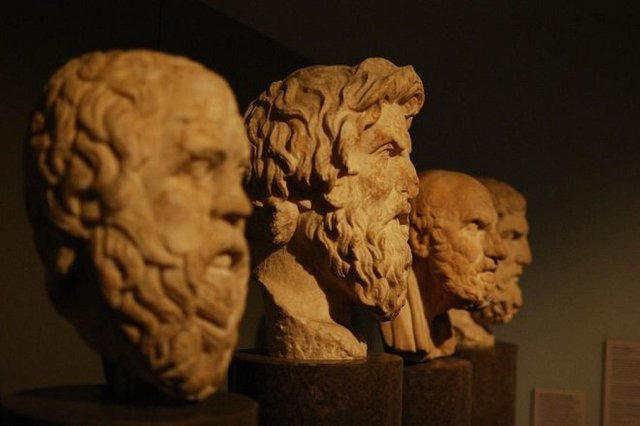Ancient philosophy. Pythagoras - a synthesis between philosophy and mysticism /part 2/
Now we want to express the historical facts about Pythagoras, they are relatively short. He was born in the city of Samos, on the island of the same name around 600 BC, as the son of a wealthy merchant named Menezar, who originated from the Tirentian pelasia and previously lived in The Peloponnese town of Flount or Philios. Different writers claim that Pythagoras had previously taken long and multiple trips to Greece and Thrace, Phenicia and Egypt, Persia and Haldell and other countries, and became familiar with the religion, science and customs of those countries. Today, however, it is believed that these journeys were attributed to him later without justification, merely by the desire to explain the philosopher's multitask and fascination, and only the fact that he had traveled and spent long in Egypt.
He would have no doubt, he knew the Greek teachings of his predecessors Ionias, especially since the island of Samos was neighboring the city of Miletus and, similarly, he was famous for his advanced trade and seafaring. In Samos, Pythagoras soon emerged as an extraordinary multifaceted personality-acting as a miracle worker, priest and preacher of a new religion, physician, and public figure. And at that time, a political regime of tyrant Polylikt was already established in Samos. As it is already known, the then tyranny was democratic in character and established itself after the aristocracy in a given area was removed from power. Naturally, she could not bear any secrets, especially religious societies, because, like every tyranny, she claims totalitarianism, that is to say, to fully lead the lives, convictions and conscience of the citizens. On the one hand for that reason, and on the other hand, due to the approaching danger of Persian slavery to 590. Pythagoras left Samos and settled in the southern Italian town of Croton, where there was a large, rich and varied Greek colony in which the sciences and the arts flourished.
Under the influence of his religious-mystical longing, Pythagoras will have come close to the orphan stream that has been highly developed in southern Italy, and will undoubtedly be the target of an innovative activity to influence the religious and moral uplift of society and for the pursuit of a purified religious view of the world. On the other hand, probably inspired by the philosophy of millets, especially Anaxemander, he acted for a rational deepening of the world's problems and for the making of science, the basic knowledge that, besides Anaxemander, he would have received on his journeys. At Krotton, Pythagoras's activity initially found favorable ground, especially because of the then rivalry between the Crotonians and the inhabitants of the neighboring city of Sibaris, which to this day remain synonymous with morally disbanded, frivolous people, spending in intoxication and siphoning. By contrast, the Crotonians were more abstinent, with strict public morality and discipline, and physically calmer. Thanks to this, as we shall see, in spite of their smaller number, they have won victories in the final battle between the two cities. Here Pythagoras found enthusiastic pilgrims especially in the midst of youth and soon founded his own religious-philosophical society, a union-order, which set out to work for the all-round religious, moral and cultural development of its members.

This post has received a 3.57 % upvote from @boomerang.